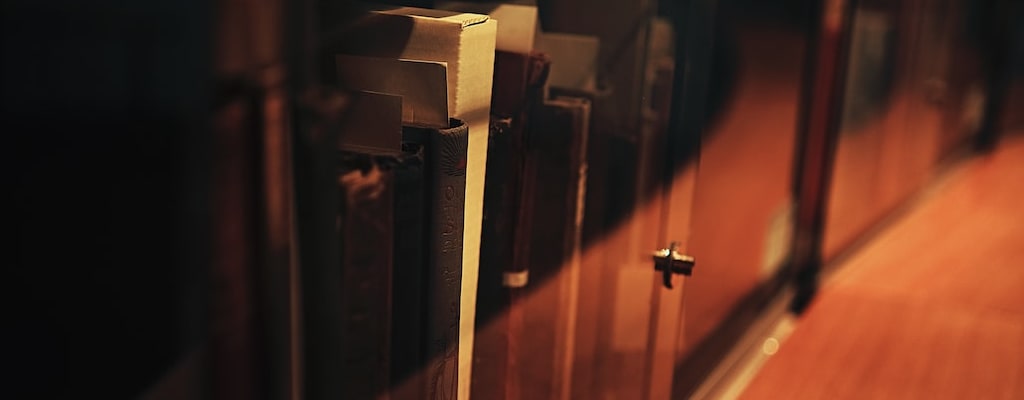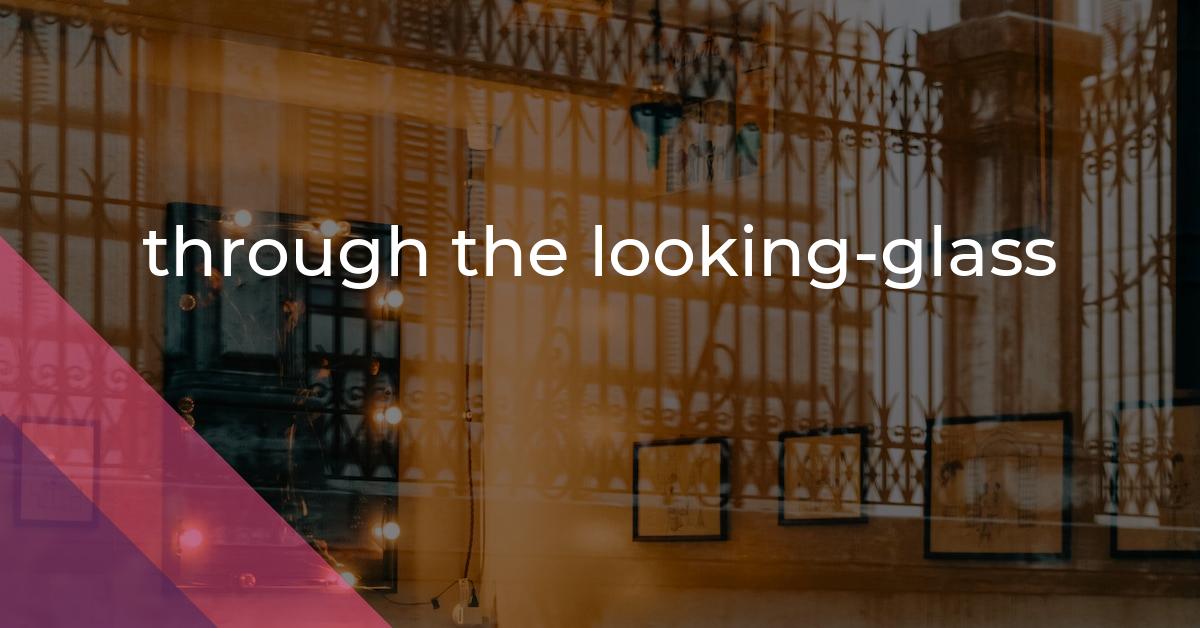through the looking-glass: Idiom Meaning and Origin
What does ‘through the looking-glass’ mean?
The idiom "through the looking-glass" refers to a surreal or alternate reality, inspired by Lewis Carroll's novel. It signifies entering a strange and unfamiliar world, often used metaphorically to describe a situation or experience that is bewildering or perplexing.

Idiom Explorer
Analyzing the idiom "window on the world", it refers to a perspective or viewpoint that provides insight and understanding of the world and its various aspects.
The idiom "under one's very eyes" means that something is happening or existing in plain sight or in close proximity to someone, without them realizing or noticing it.
The idiom "through the mill" means to go through a difficult or challenging experience, often resulting in personal growth or resilience.
The idiom "think back" means to reflect or remember a previous time or event. It often involves recalling memories or considering past experiences in order to gain insight or make comparisons to the present.
The idiom "take a look" means to examine or observe something briefly or quickly.
The idiom "somewhere over the rainbow" refers to a place or situation that is idyllic or perfect, but is often unattainable or fictional.
"See through" means to recognize the true nature or hidden agenda of something or someone, often referring to a person's dishonesty or deceitful behavior.
The idiom "see things" means to perceive or experience something in a particular way, often different from reality. It implies a subjective understanding or interpretation of a situation or event.
The idiom "see the trees through the forest" means to focus on small details and lose sight of the overall picture or main idea. This can happen when someone becomes too absorbed in the minor aspects of a situation and fails to understand the larger context or objective.
The idiom "see the dark side of the moon" refers to experiencing or witnessing the hidden or negative aspects of a person, situation, or thing.
Upside-Down Perspectives
The phrase "through the looking-glass" originated from Lewis Carroll's famous novel "Through the Looking-Glass, and What Alice Found There" published in 1871. In the novel, Alice enters a fantastical world by climbing through a mirror, and the phrase "through the looking-glass" has since become a metaphor for entering a surreal or unfamiliar realm. When used metaphorically, this idiom refers to a situation or experience that is disorienting, unconventional, or opposite to what one is accustomed to. It often denotes a state of confusion or uncertainty, as one navigates through a world that is different from their own. It can also imply a sense of self-reflection or introspection.
The idiom "through the looking-glass" has influenced popular culture and has been used in various contexts, including literature, film, and music. It has been employed to describe diverse scenarios, from political transformations and social change to personal introspection and psychological exploration. This versatile phrase captures different shades of meaning such as adventure and departure from reality into a world of imagination and illusion. It can also describe a reversal of roles or a topsy-turvy situation, where familiar norms and expectations are overturned.
One related idiom that reflects the concept of "through the looking-glass" is "see things." When someone says they "see things," they are often referring to having a unique perspective or perceiving things in an unconventional way. This idiom aligns with "through the looking-glass" as it implies seeing the world through a different lens and exploring new possibilities beyond the ordinary.
Another related idiom is "look through," which signifies examining or scrutinizing something carefully. It can be interpreted in the context of "through the looking-glass" as looking beyond the surface and delving into the depths of an unfamiliar world or concept. By "looking through" the looking-glass, one can gain insights and understanding that go beyond initial appearances.
The phrase "curiouser and curiouser" also relates to "through the looking-glass." In Carroll's novel, Alice encounters numerous curious and perplexing situations. The idiom "curiouser and curiouser" embodies the sense of wonder and intrigue that arises when exploring the unknown, much like Alice's experiences in the surreal world beyond the looking-glass. It suggests a continuous unfolding of surprises and a never-ending curiosity for what lies beyond.
Lastly, the idiom "see the trees through the forest" can be connected to "through the looking-glass." This phrase refers to focusing on individual details or elements rather than the overall picture. Similarly, "through the looking-glass" encourages individuals to examine the intricacies and nuances of an unfamiliar realm, to see beyond the general or expected and delve deeper into the intricacies of a new world. By seeing the trees through the forest, one gains a more profound understanding and appreciation of the unfamiliar landscape.
The idiom "through the looking-glass" encompasses various meanings and has captivated audiences for decades. It continues to invite contemplation and urges individuals to explore the world beyond their own reflection. This versatile phrase serves as a reminder to venture into the unknown, embrace the unconventional, and engage in self-reflection on the journey of discovery.
Example usage
Examples of how the idiom "through the looking-glass" can be used in a sentence:
- She felt like she had stepped through the looking-glass when she entered the alternate reality of her dreams.
- The novel takes its readers through the looking-glass of Victorian society, offering a satirical critique of its customs and values.
- After the unexpected turn of events, everything seemed surreal, as if they were living through the looking-glass.
More "Literature" idioms



